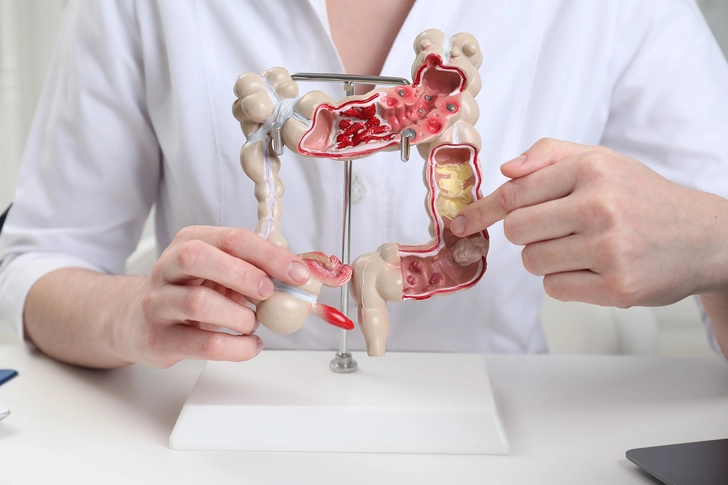- Overview
- Symptoms
- Causes & Risks
- Tests & Diagnosis
- Treatment
- Living With
- Complications
- Support & Resources
- Appointment Prep
- View Full Guide
Crohn's & NSAIDs


NSAIDs and Crohn's Disease
Your doctor may have warned you to avoid taking nonsteroidal anti-inflammatory drugs (NSAIDs). For aches and pains, most doctors recommend taking acetaminophen instead of NSAIDs if you have Crohn's.

Official Guidelines
The American College of Gastroenterology recommends that people with Crohn's avoid NSAIDs because they could cause symptom flare-ups as well as ulcers. Using NSAIDs also raises your risk of an emergency hospitalization for your Crohn's.

Safer Pain Relief
Acetaminophen is generally a better option for pain relief if you have Crohn's. Other alternative treatments for pain include antidepressants, exercise, and an anti-inflammatory diet.

Risks of Long-Term Use
Even people who don't have Crohn's have a higher risk of digestive problems and stomach or intestinal ulcers when they take NSAIDs. Prolonged NSAID use can increase the risk of developing inflammatory bowel disease and other gastrointestinal issues.

Holistic Health Approach
A holistic approach to treating pain might include aerobic exercise, physical therapy, medication, and psychotherapy. Anxiety and depression often go along with Crohn's, so a psychiatric evaluation and treatment with an antidepressant may help with pain as well.
"Photo Credits:
1) luchschenF/Shutterstock
2) Yeexin Richelle/Shutterstock
3) luchschenF/Shutterstock
4) New Africa/Shutterstock
5) Studio Romantic/Shutterstock
Alimentary Pharmacology & Therapeutics: “Systematic review with meta-analysis: association between acetaminophen and nonsteroidal anti-inflammatory drugs (NSAIDs) and risk of disease and ulcerative colitis exacerbation.”
American Journal of Gastroenterology: “ACG Clinical Guideline: Management of Disease in Adults,” “Chronic Nonsteroidal Anti-Inflammatory Drug Use and Its Association With Microscopic Colitis and Inflammatory Bowel Disease: A Retrospective Case Control Study.”
BMC Gastroenterology: “The association between inflammatory potential of diet and disease activity: results from a cross-sectional study in patients with inflammatory bowel disease.”
Crohn’s & Colitis Foundation: “Causes of Flares,” “Pain Management for IBD Patients.”
Crohn’s and Colitis Canada: “Pain and IBD.”
Gastroenterology and Hepatology: “Managing Pain in Inflammatory Bowel Disease.”
Inflammatory Bowel Disease: “Measurement of Inflammatory Bowel Disease Symptoms: Reliability of an Abbreviated Approach to Data Collection.”
Journal of Clinical Gastroenterology: “Role of Non-Steroidal Anti-Inflammatory Drugs in Exacerbations of Inflammatory Bowel Disease.”
Mayo Clinic: “Advances in the treatment of disease and ulcerative colitis.”
Pharmaceuticals: “Non Steroidal Anti-Inflammatory Drugs and Inflammatory Bowel Disease,” “Use of Cyclo-Oxygenase Inhibitors Is Not Associated with Clinical Relapse in Inflammatory Bowel Disease.”
Postgraduate Medical Journal: “Non-steroidal anti-inflammatory drugs and gastrointestinal damage—problems and solutions.”Photo"